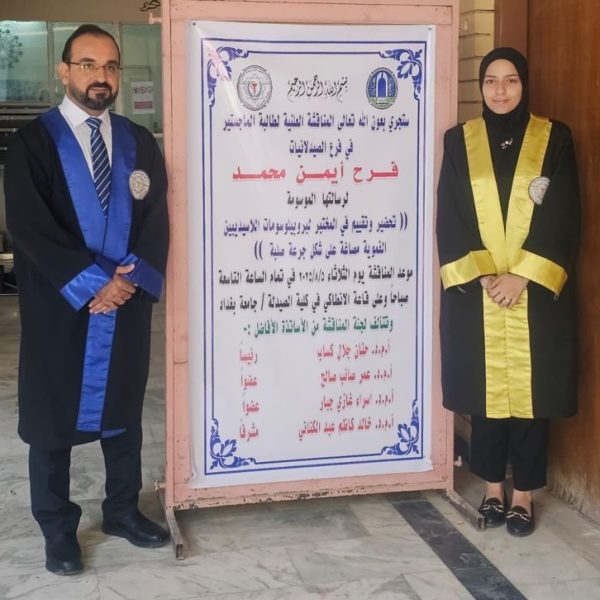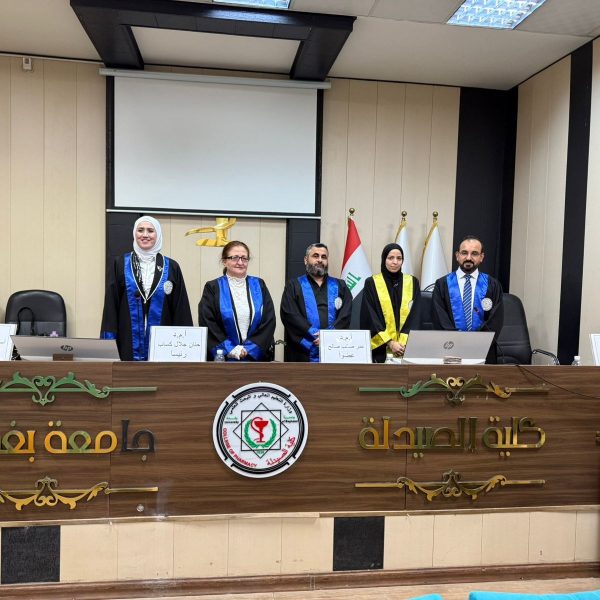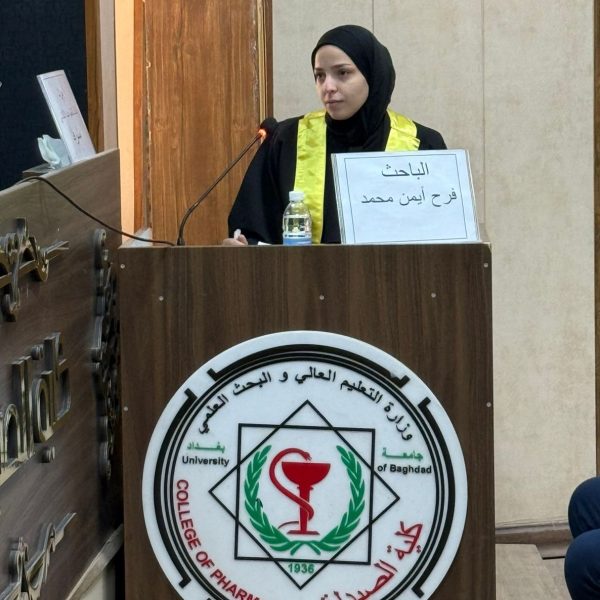The College of Pharmacy discussed the M.sc. Thesis entitled “Preparation, optimization and in-vitro evaluation of oral Lacidipine-loaded probilosome capsules” by the student Farah Ayman Al-Shantir and her supervisor, Assistant Professor Dr. Khalid Kadhem Al-Kinani, at the Pharmaceutics Department.
The study aimed to enhance the oral bioavailability of LCDP by formulating it into bilosomes and subsequently converting the optimized formulation (Bopt) into a stable probilosomal powder through freeze-drying.
LCDP-loaded bilosomes were prepared using the ethanol injection method and optimized via Box-Behnken design (BBD), a quality by design approach (QBD). The optimized bilosomal formulation was subsequently transformed into a free-flowing probilosomal powder using freeze-drying. Cholesterol (CHO), the surfactant Span® 60, and the bile salt sodium deoxycholate (SDC) served as independent formulation factors, while particle size (PS), entrapment efficiency (EE%), and polydispersity index (PDI) were selected as dependent responses.
The optimized formulation (Bopt) showed promising results, with a particle size of 198.3 nm, a PDI value of 0.21, a zeta potential of -25 mV, and an entrapment efficiency of 96.3%. In vitro drug release reached 78.9% within 45 minutes. The design model revealed a statistically significant effect on particle size and entrapment efficiency (p < 0.05), while the effect on PDI was not statistically significant (p > 0.05). Stability studies demonstrated that the proliposome formulation maintained its characteristics for at least three months.
Bilosomes serve as effective nanovesicular carriers that can enhance the oral bioavailability of LCDP, thereby overcoming its inherent solubility limitations. Moreover, the probilosomal powder’s free-flowing nature facilitates its incorporation into oral solid dosage forms. Thus, LCDP-loaded probilosomes represent a promising strategy for pharmaceutical applications.





